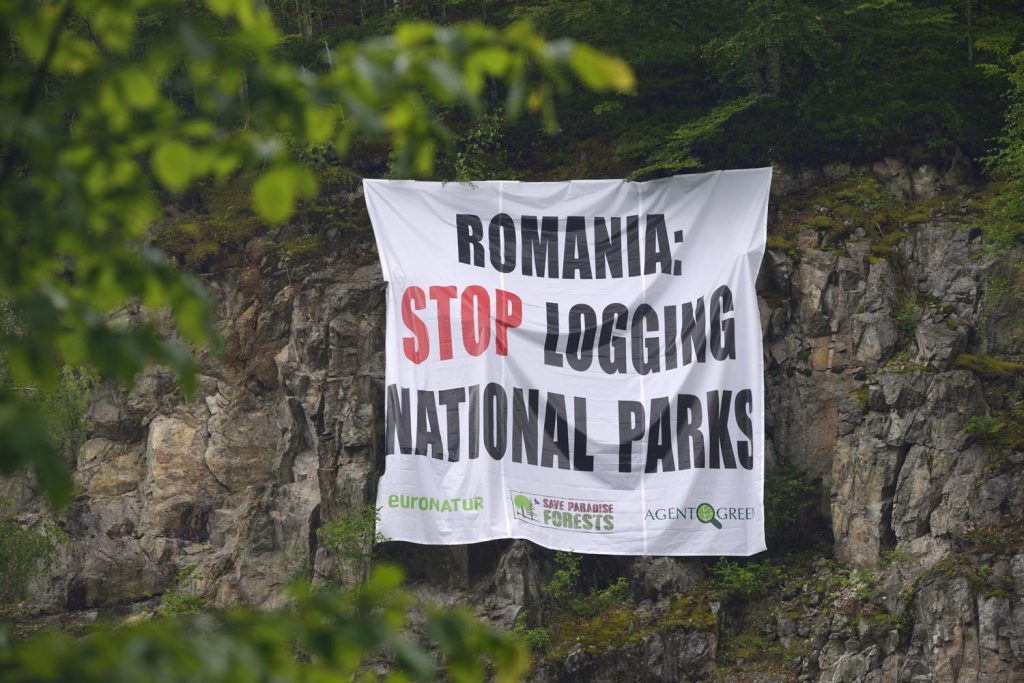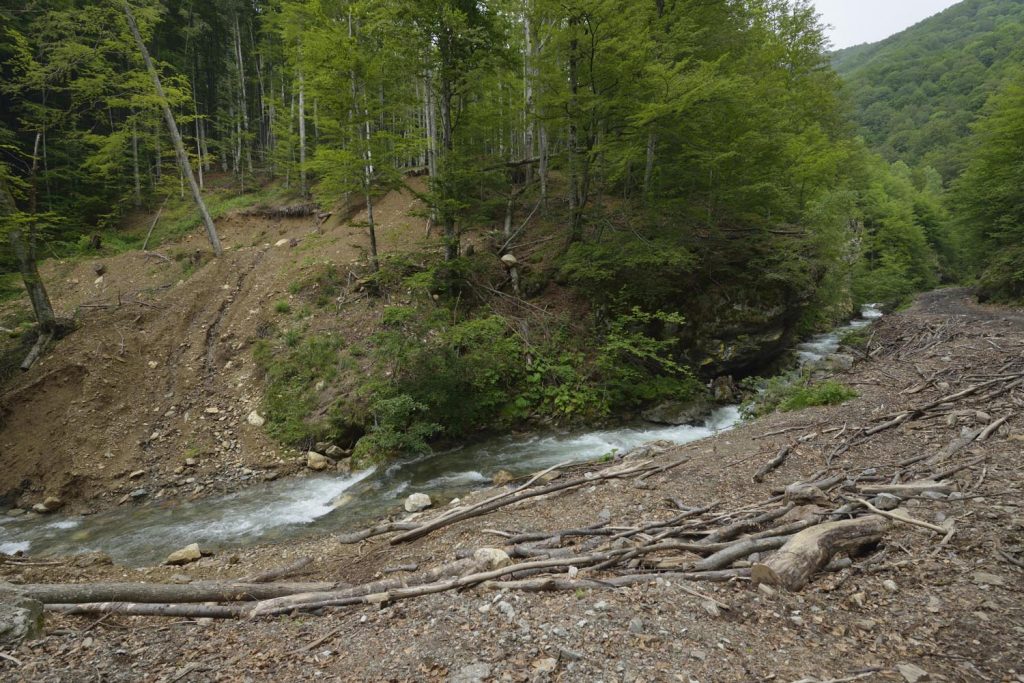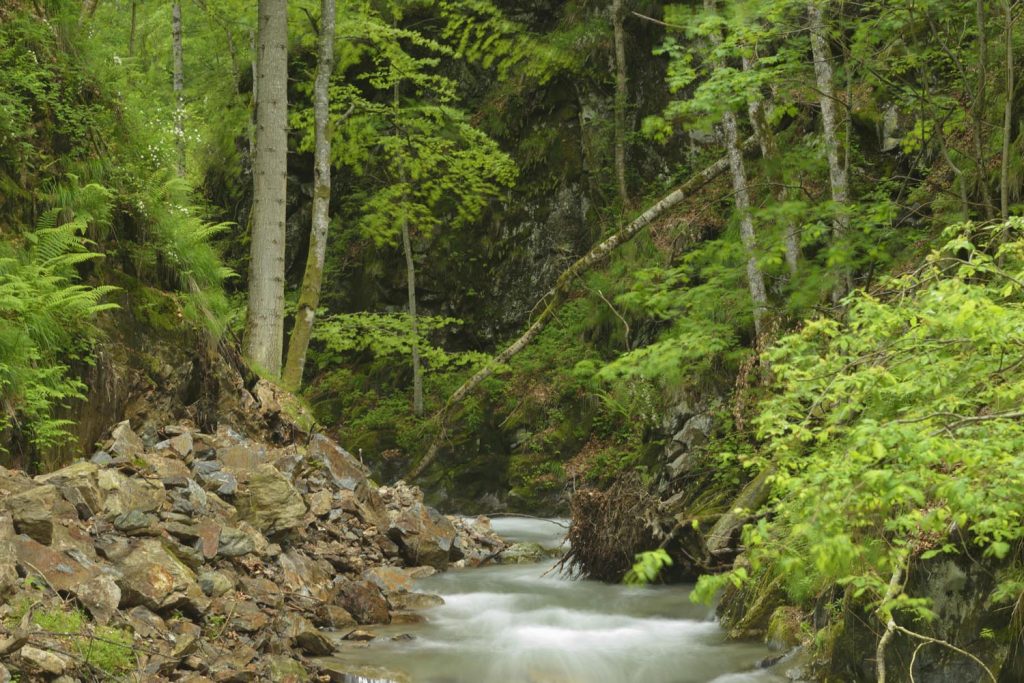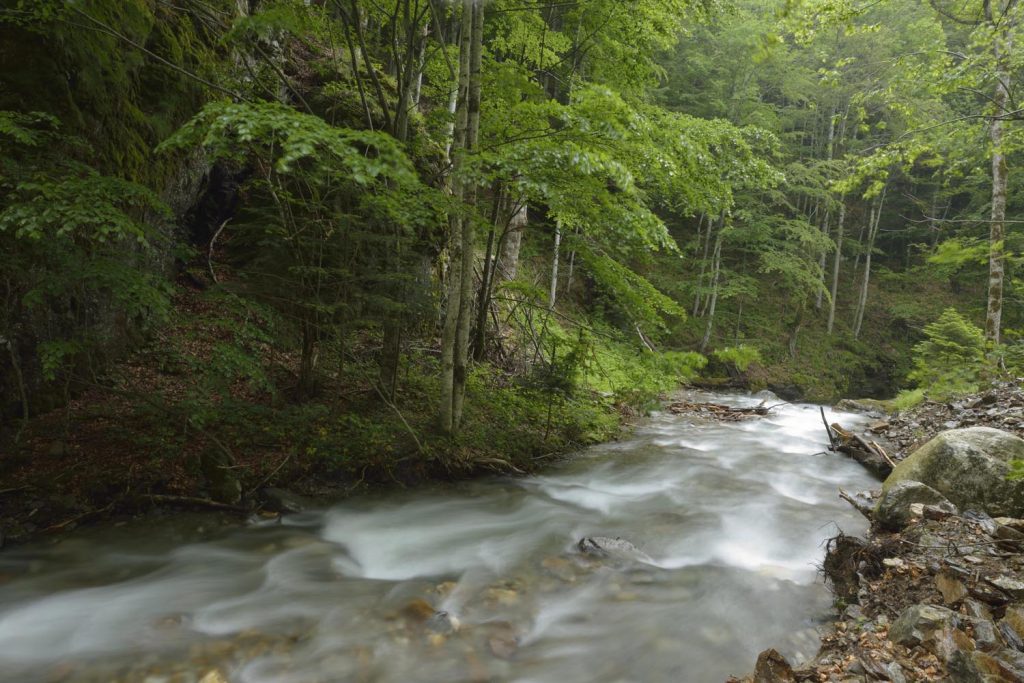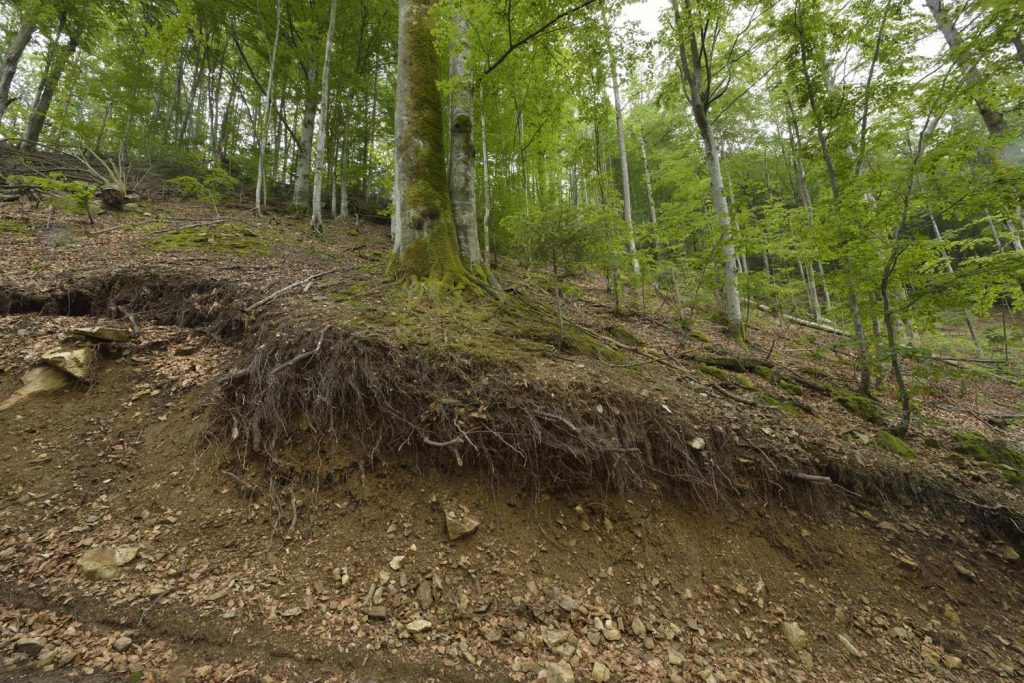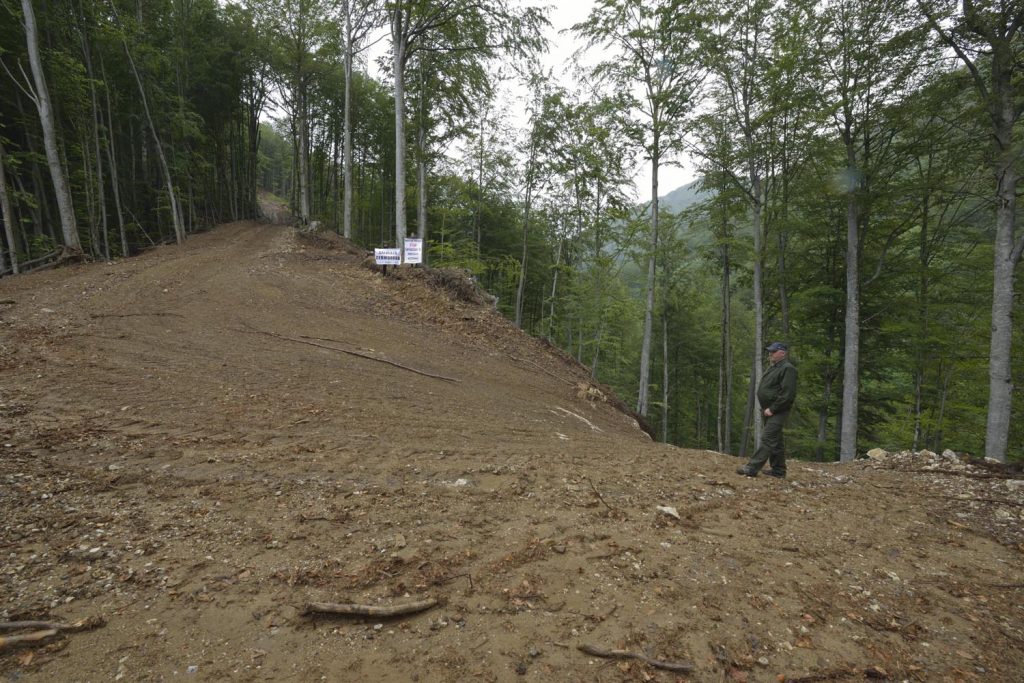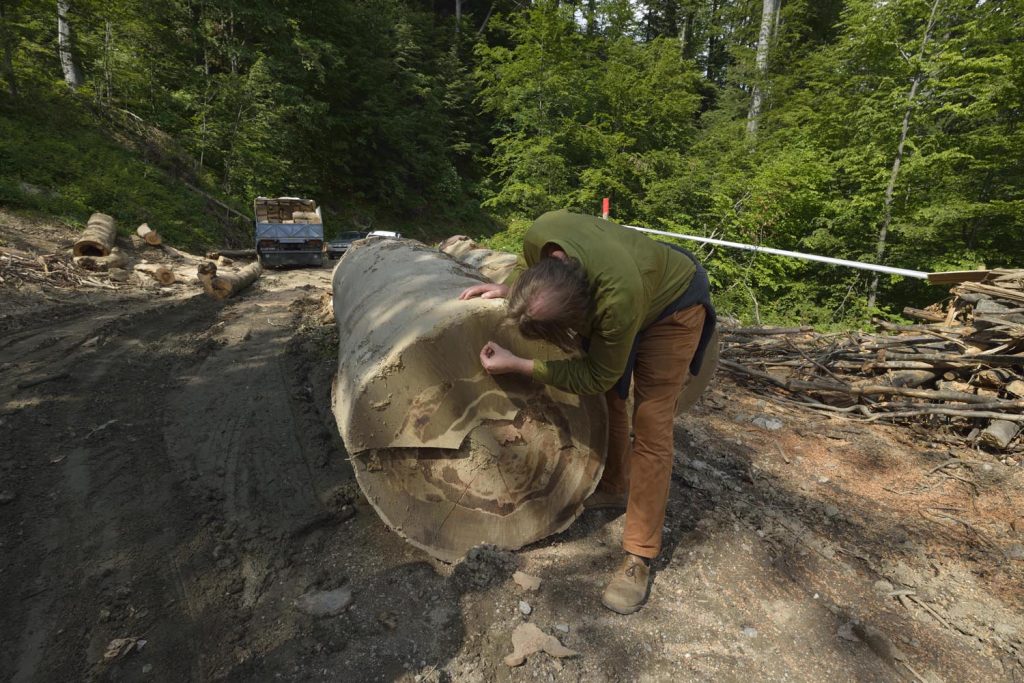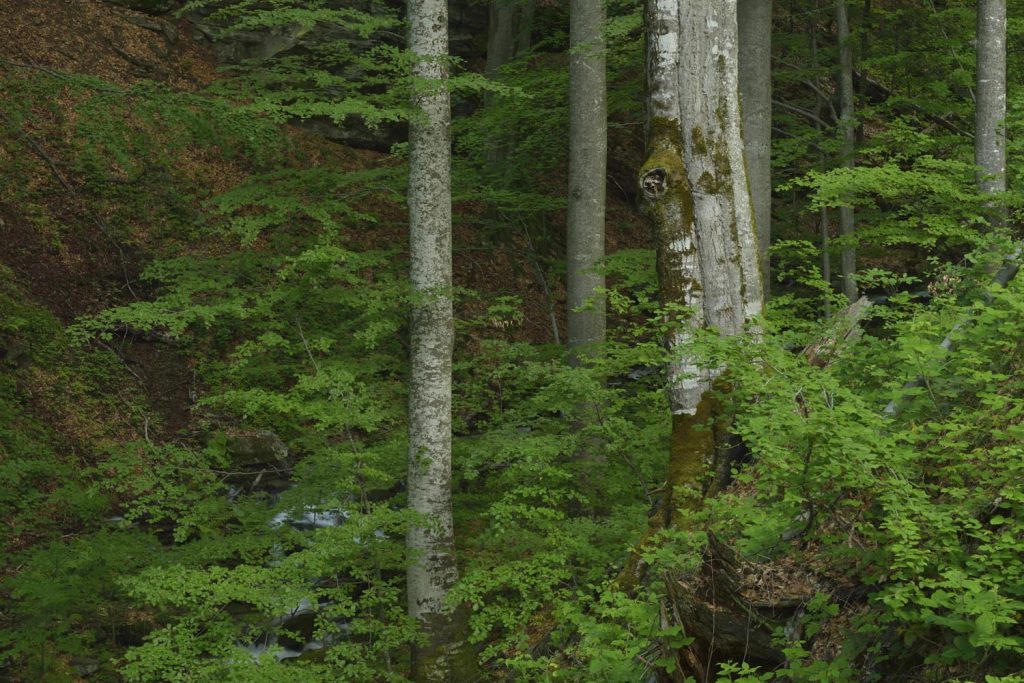EIA report takes a closer look behind Romania’s forest industry
EuroNatur and Agent Green call for logging ban in all Romanian national parks
The new EIA report Behind the Scenes takes a detailed look at how the Austrian timber companies Holzindustrie Schweighofer, Kronospan and Egger continue to fuel the destruction of Europe’s last old growth forests. Holzindustrie Schweighofer pledged five years ago not to source timber from national parks or protected areas. The report shows how log yards hide the destruction of Europe’s last primeval and old growth forests in Romania…
EIA used Romania’s public timber tracking website, Forest Inspector, to study the sourcing operations of several Schweighofer suppliers as they cut wood in two national parks in Romania’s Carpathian Mountains. EIA visited these sites and documented large-scale, sometimes illegal, commercial logging in both the Rodna Mountains and Calimani National Parks.
According to data compiled by EIA, companies that supply Schweighofer have harvested at least 35,000 cubic meters from these two parks in an 18-month time period through June 2018. On-the-ground research tracked logs from these parks to local wood depots that supply Schweighofer. Schweighofer’s extensive sourcing from third-party log yards – approximately 45% of its Romanian log purchases – exposes the company to wood from national parks, as well as to illegal logging and other unsustainable practices.
EIA also found that other large multinational companies in Romania, like Kronospan and Egger, have similar sourcing issues. EIP points out, that the lack of real traceability to the forest origin by all these companies, in a country like Romania with an elevated risk of corruption, means that their purchases fuel the illegal and unsustainable logging that continues to erode Romania’s rich biodiversity and the economic future of its timber processing industry.
Romania’s Carpathian Mountains contain the majority of the remaining old growth forests in Europe. EIA: All foreign companies operating in Romania have a responsibility to enact real traceability for their wood purchases and to stop abetting the destruction of Europe’s last great forests.
